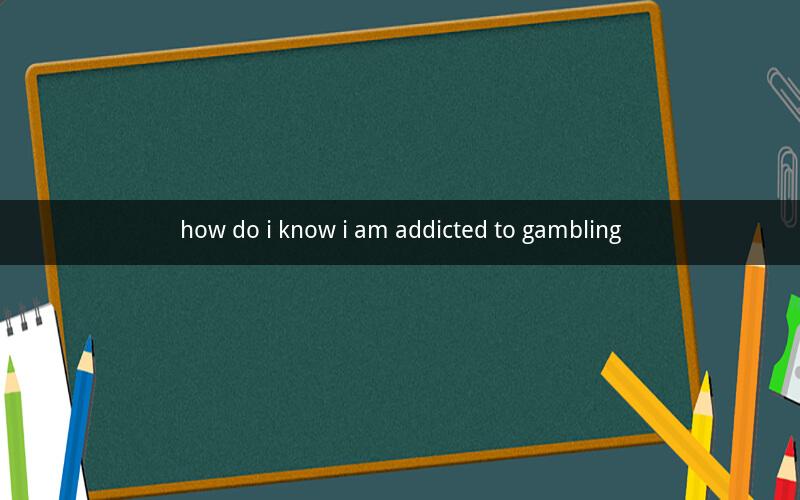
How Do I Know If I Am Addicted to Gambling?
Table of Contents
1. Understanding Gambling Addiction
2. Symptoms of Gambling Addiction
- Financial Issues
- Time Commitment
- Emotional and Psychological Effects
- Social Consequences
3. The Importance of Seeking Help
4. Treatment Options for Gambling Addiction
- Therapy
- Support Groups
- Medication
5. The Road to Recovery
6. Resources and Support
1. Understanding Gambling Addiction
Gambling addiction, also known as problem gambling or compulsive gambling, is a condition where an individual has an uncontrollable urge to gamble despite negative consequences. It is characterized by a preoccupation with gambling, a need for increasing amounts of money to satisfy the desire to gamble, and a failure to stop gambling despite repeated promises to do so.
2. Symptoms of Gambling Addiction
2.1 Financial Issues
One of the most common signs of gambling addiction is a significant financial burden. This may include:
- Borrowing money to fund gambling activities
- Missing payments on bills or loans
- Selling possessions to fund gambling
- Stealing to finance gambling habits
2.2 Time Commitment
Gamblers with an addiction often allocate a substantial amount of time to gambling. Symptoms include:
- Spending more time gambling than intended
- Neglecting work, school, or family responsibilities
- Using a significant portion of one's day for gambling activities
2.3 Emotional and Psychological Effects
Gambling addiction can have profound emotional and psychological effects, such as:
- Mood swings, including periods of elation and depression
- Increased anxiety or stress
- Feelings of guilt, shame, or despair
- Difficulty concentrating
2.4 Social Consequences
The consequences of gambling addiction can extend beyond the individual, affecting family and friends. These may include:
- Strained relationships
- Divorce or separation
- Loss of friendships
- Financial burden on loved ones
3. The Importance of Seeking Help
Recognizing the signs of gambling addiction is the first step towards recovery. Seeking help is crucial to address the addiction and mitigate its impact on one's life. Help can come from various sources, including therapy, support groups, and self-help resources.
4. Treatment Options for Gambling Addiction
4.1 Therapy
Therapy is a key component of treating gambling addiction. It can take several forms, including:
- Cognitive-behavioral therapy (CBT): Helps individuals identify and change negative thought patterns and behaviors associated with gambling.
- Family therapy: Focuses on addressing the impact of gambling addiction on family dynamics.
- Group therapy: Provides a supportive environment where individuals can share experiences and learn from others.
4.2 Support Groups
Support groups, such as Gamblers Anonymous, offer a community of individuals who understand the challenges of gambling addiction. They provide a safe space for sharing experiences, seeking advice, and receiving encouragement.
4.3 Medication
In some cases, medication may be prescribed to help manage the symptoms of gambling addiction. These may include:
- Antidepressants
- Mood stabilizers
- Antipsychotic medications
5. The Road to Recovery
Recovery from gambling addiction is a journey that requires time, effort, and commitment. It involves:
- Acknowledging the problem
- Setting goals for recovery
- Developing coping strategies
- Maintaining a supportive network
6. Resources and Support
There are numerous resources and support options available for individuals struggling with gambling addiction. Some of these include:
- National Helplines: Hotlines that provide immediate assistance and guidance.
- Online Forums: Online communities where individuals can share experiences and receive support.
- Local Support Groups: Meetings in one's area where individuals can connect with others facing similar challenges.
---
Related Questions and Answers
1. What is the difference between gambling and gambling addiction?
- Gambling is a form of entertainment, whereas gambling addiction is a compulsive behavior that leads to negative consequences.
2. Can someone be addicted to online gambling?
- Yes, online gambling can be addictive, and it often presents unique challenges due to its accessibility and anonymity.
3. How can I tell if my friend is struggling with gambling addiction?
- Look for signs such as financial problems, increased time spent on gambling, and changes in behavior or mood.
4. Are there any legal consequences of gambling addiction?
- Legal consequences can vary depending on the laws in a specific area, but criminal charges may apply if an individual commits illegal acts to fund their gambling habits.
5. Can therapy help someone overcome gambling addiction?
- Yes, therapy is an effective treatment for gambling addiction, providing individuals with tools to manage their cravings and cope with the challenges of recovery.
6. Is it possible to recover from gambling addiction on my own?
- While some individuals may recover without formal treatment, seeking help from professionals or support groups can significantly improve the chances of successful recovery.
7. How long does it take to recover from gambling addiction?
- Recovery time varies for each individual, but it is a lifelong process that may involve setbacks and relapses.
8. Can gambling addiction affect my career?
- Yes, gambling addiction can lead to job loss, decreased productivity, and strained professional relationships.
9. Are there any side effects of medication used to treat gambling addiction?
- Side effects can vary depending on the medication, but they may include drowsiness, dry mouth, and changes in appetite.
10. How can I support a loved one with gambling addiction?
- Encourage them to seek help, offer emotional support, and be patient during their recovery journey.